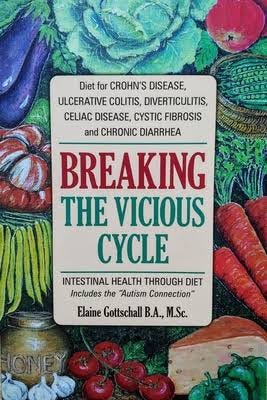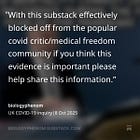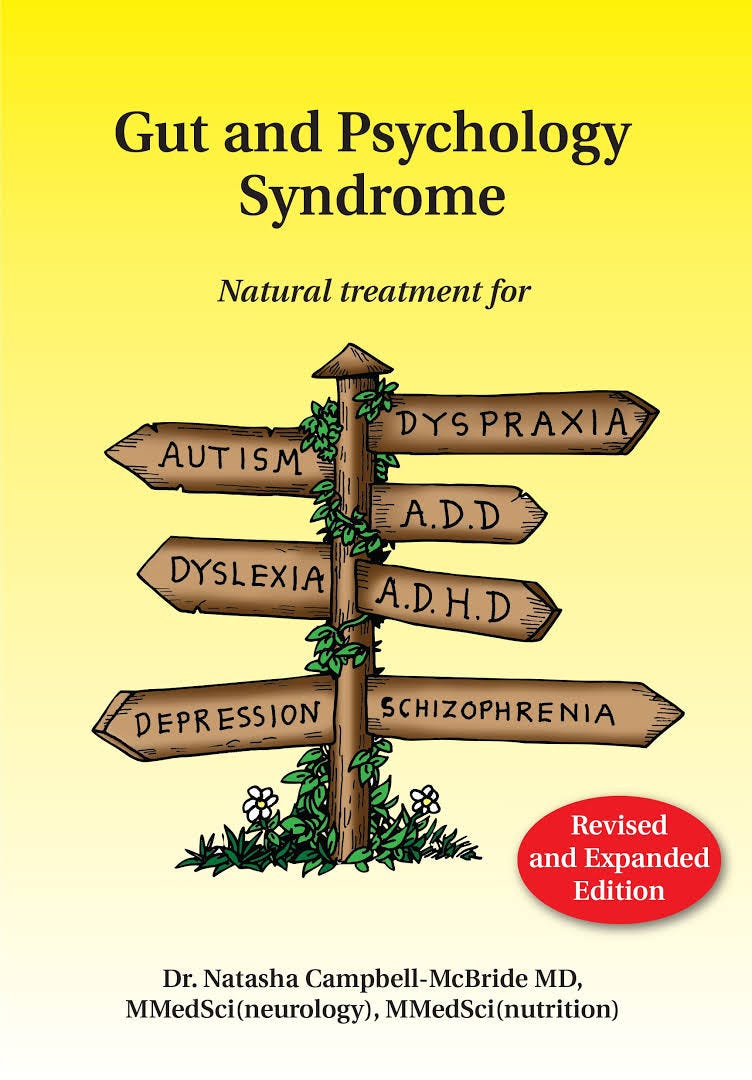Find Focus and Health Through the Gut
the gut-brain axis is essential to vibrant health
In a previous article, I wrote about Elaine Gottschall’s book, Breaking the Vicious Cycle.1
I still do not own this book and have not read it. However, based on a YouTube video (which I will link again), I’ve gathered enough information to provide a few more important details that I didn’t cover in the last article.
In her book, Gottschall details the Specific Carbohydrate Diet (SCD).
What is the Specific Carbohydrate Diet?
The Specific Carbohydrate Diet (SCD) eliminates all grains, starchy foods, added sugars, and most dairy while allowing only easily digested monosaccharide carbohydrates from whole, unprocessed foods.
There are three categories of carbohydrates: monosaccharides, disaccharides, and polysaccharides. For the purpose of this article, we will focus on monosaccharides and disaccharides.

Only easily digested monosaccharide carbohydrates from whole, unprocessed foods are allowed. These will not come in a box or can, as they are unprocessed.
What is a Monosaccharide Carbohydrate?
Examples of monosaccharide carbohydrates include:
Glucose: Found in fruits, vegetables, and honey.
Fructose: Mainly found in fruits.
Galactose: Found in cheese, butter, yogurt, some fruits, vegetables, and legumes.

The types of carbohydrates you must avoid on this diet are called disaccharides.
Disaccharides are:
A type of carbohydrate composed of two monosaccharide molecules.
Commonly found in foods such as table sugar (sucrose) and milk sugar (lactose), including sucrose, lactose, and maltose.
Often used in the food industry as sweeteners, stabilizers, or bulking agents.
Linked to digestive issues.
taxing on the digestive system as they require enzymes to break them down into their monosaccharide components for absorption into the bloodstream.
I’ll go out on a limb here and say that disaccharides must be eliminated for people following this diet because they are taxing on the digestive tract. Monosaccharides, on the other hand, do not require enzymes to break down and are easily absorbed into the bloodstream.
```
The article will resume shortly, but I wish to take a moment to inform you about the ongoing sale! I assure you, we will return to the article very soon!
```
Join the Far Side of Fringe community and support independent storytelling! By becoming a free or paid subscriber, you’ll get exclusive access to fresh posts and help fuel my work. Right now, our Fall Sale offers 70% off—a month’s subscription costs less than a cup of coffee, and a full year is like treating me to just four coffees (depending on your coffee shop!). Your support helps me invest in top-notch software to create even better videos and visuals. Don’t miss out—only 67 days left to grab this deal!
As mentioned, other foods to eliminate include grains, starchy foods, added sugars, and most dairy products. Gottschall does provide a recipe for homemade yogurt. Store-bought yogurt is often less beneficial due to added sugars and rapid fermentation, which reduces the amount of beneficial bacteria compared to homemade yogurt. However, store-bought kefir may offer more benefits than store-bought yogurt.
What Will I Eat?
You’ll be eating homemade foods, including meat, eggs, broths, soups, homemade yogurt, fruits (don’t overdo the fruit), and vegetables.

If this sounds like something you might be interested in, I recommend reading Gottschall’s book. Additionally, you can check out Dr. Natasha Campbell-McBride’s book, Gut and Psychology Syndrome: Natural Treatment for Autism, Dyspraxia, A.D.D., Dyslexia, A.D.H.D., Depression, Schizophrenia.
Who Would Want to Do This Diet?
As with any diet that eliminates entire food groups, many people may resist it because restricting your diet can seem like a hassle. However, some individuals with serious health issues may be desperate for solutions.
Here is a list of health conditions (this may not be exhaustive) that are known to respond well to the SCD:
Autism,
dyspraxia,
ADD,
dyslexia,
ADHD,
depression,
schizophrenia,
rheumatoid arthritis,
diabetes,
Crohn’s disease,
asthma,
eczema,
allergies,
thyroid disorders,
inflammatory bowel disease (IBD),
ulcerative colitis,
microscopic colitis,
diverticulitis,
celiac disease,
cystic fibrosis,
Chronic Diarrhea and other chronic diseases.






I have to agree that the unhealthy diet of today contributes and may even cause a lot of these ailments.
Leslie